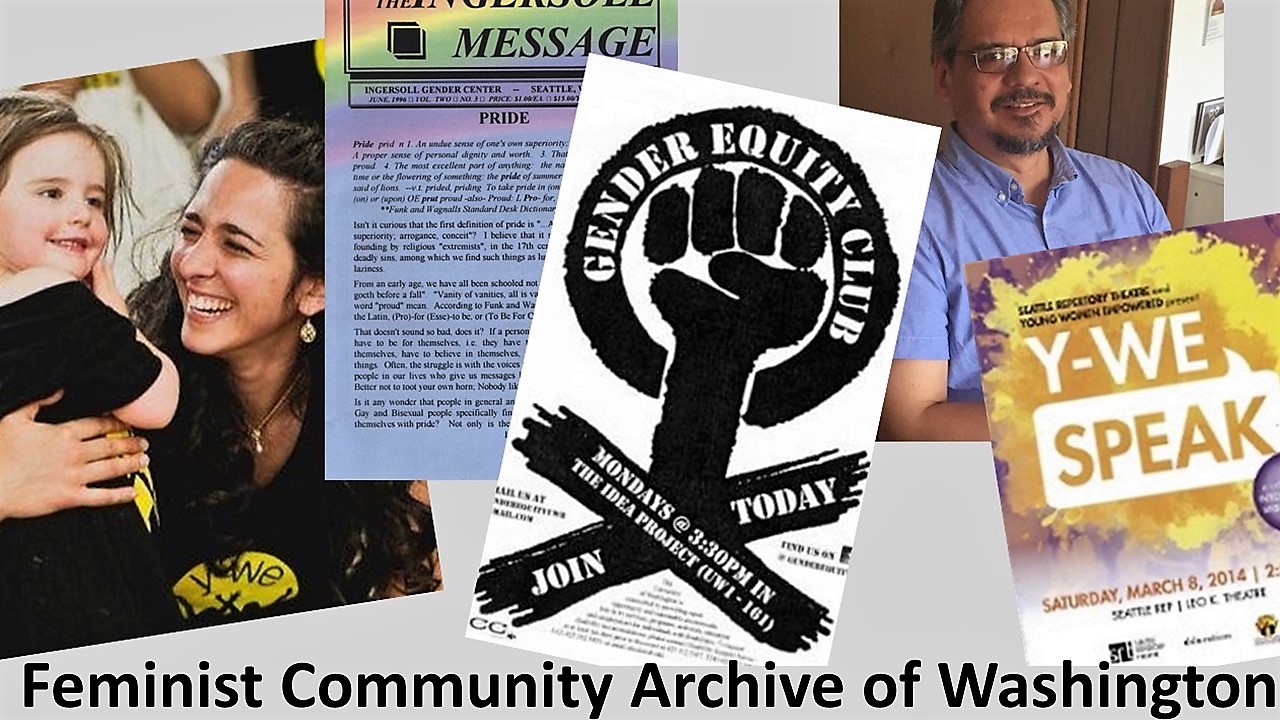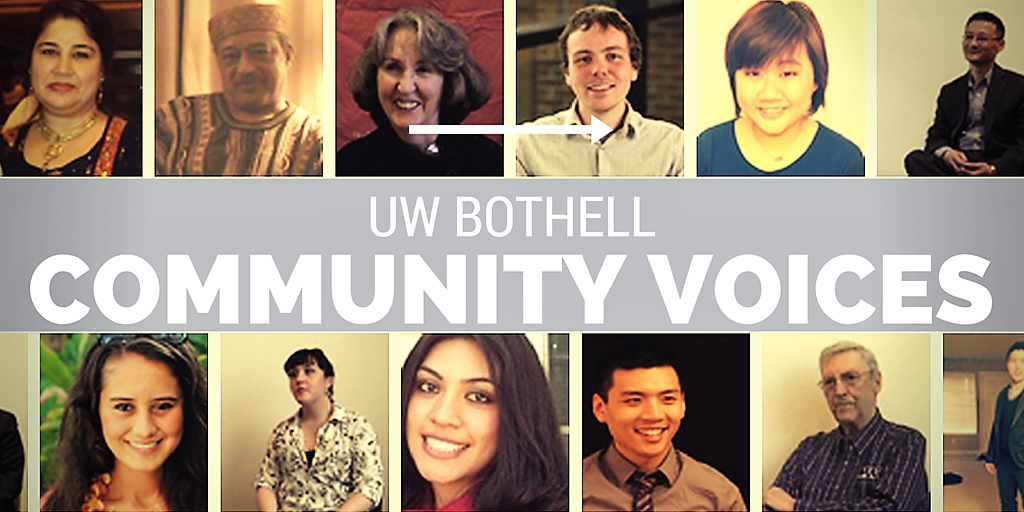
Dan Berger, right, interviews author John McCoy. (Marc Studer photo)
By Douglas Esser
In front of one History of Mass Incarceration class, Associate Professor Dan Berger interviewed author John McCoy about a short-lived reform in the late 1970s at the Washington state Penitentiary. Berger drew out lively details about wardens and prisoners from the journalist who went behind the walls to write “Concrete Mama: Prison Profiles from Walla Walla.”
The University of Washington Bothell students in this fall class will not be the only ones to hear how a hardline warden was replaced by a reformer whose attempt to give prisoners more of a say ended in a riot and lockdown.
Berger recorded the interview as an oral history for the digital collections at the University of Washington Bothell/Cascadia College Campus Library. It will join other recordings and documents compiled for the Washington Prison History Project.
Initially called the Northwest Prison Archive, it arose from discussions Berger had with colleagues, including Gillian Harkins, UW associate professor of English, to support civil society inside Washington state prisons. The archive helps circulate and preserve policy proposals from groups such as the Black Prisoners Caucus and the Concerned Lifers Organization, Berger says. The archive also includes papers from formerly incarcerated activist Ed Mead who edited a number of prisoner publications and co-founded "Prison Legal News."
“They provide a rare, much-needed glimpse into how incarcerated people organize to improve not only their conditions but society as a whole,” said Berger, a historian in the School of Interdisciplinary Arts & Sciences (IAS) who studies prison movements in the 20th century.
The bulk of the work of maintaining the materials is done by the campus library, under Sarah Leadley, associate dean/director, and Denise Hattwig, curator of digital scholarship and collections. The Washington Prison History Project is the latest addition to the library’s archives.
Another is the Feminist Community Archive of Washington, created through the efforts of Julie Shayne, senior lecturer, IAS, and faculty coordinator for gender, women and sexuality studies. This archive documents and preserves the work of feminist social justice organizations in the Puget Sound region.

Yet another is the Wetlands Collection, compiled through the work of Warren Gold, an associate professor, IAS, and director of the UW Restoration Ecology Network. It includes maps and photos documenting the restoration of the UW Bothell wetlands.

A fourth archive is Community Voices, oral histories of students, faculty, staff and Bothell community members.

The library consciously creates the archives in partnership with faculty to support their research and teaching, says Leadley.
“Because we’re very much a teaching library, we decided we wanted the focus for our digital collection on the curriculum. So that’s why it’s about working with faculty, involving students and taking those products to other classes,” Leadley said.
The archives are accessible to the public, and there’s no need to visit the library on campus. As part of the UW Libraries’ Digital Collections, the UW Bothell archives are preserved and freely available with open access on the internet.
Hattwig works closely with faculty and students to develop new content, in alignment with campus values of diversity and community engagement.
Having the archive is a wonderful opportunity for students, says Berger. In addition to the experience for undergraduates in History of Mass Incarceration, Berger’s graduate students in Prison, Politics and Activism conduct oral histories for the project. Berger hopes the Washington Prison History Project counters punitive isolation by highlighting what prisoners think and do.
“This project wouldn’t be possible without the library’s commitment to open access of information,” Berger says.
McCoy and photographer Ethan Hoffman, who quit their jobs at the Walla Walla Union-Bulletin to work on “Concrete Mama,” captured details of penitentiary life at a unique time when Washington was a leader in prison reform. McCoy thanks Berger for helping the University of Washington Press decide to reprint the book next year.



